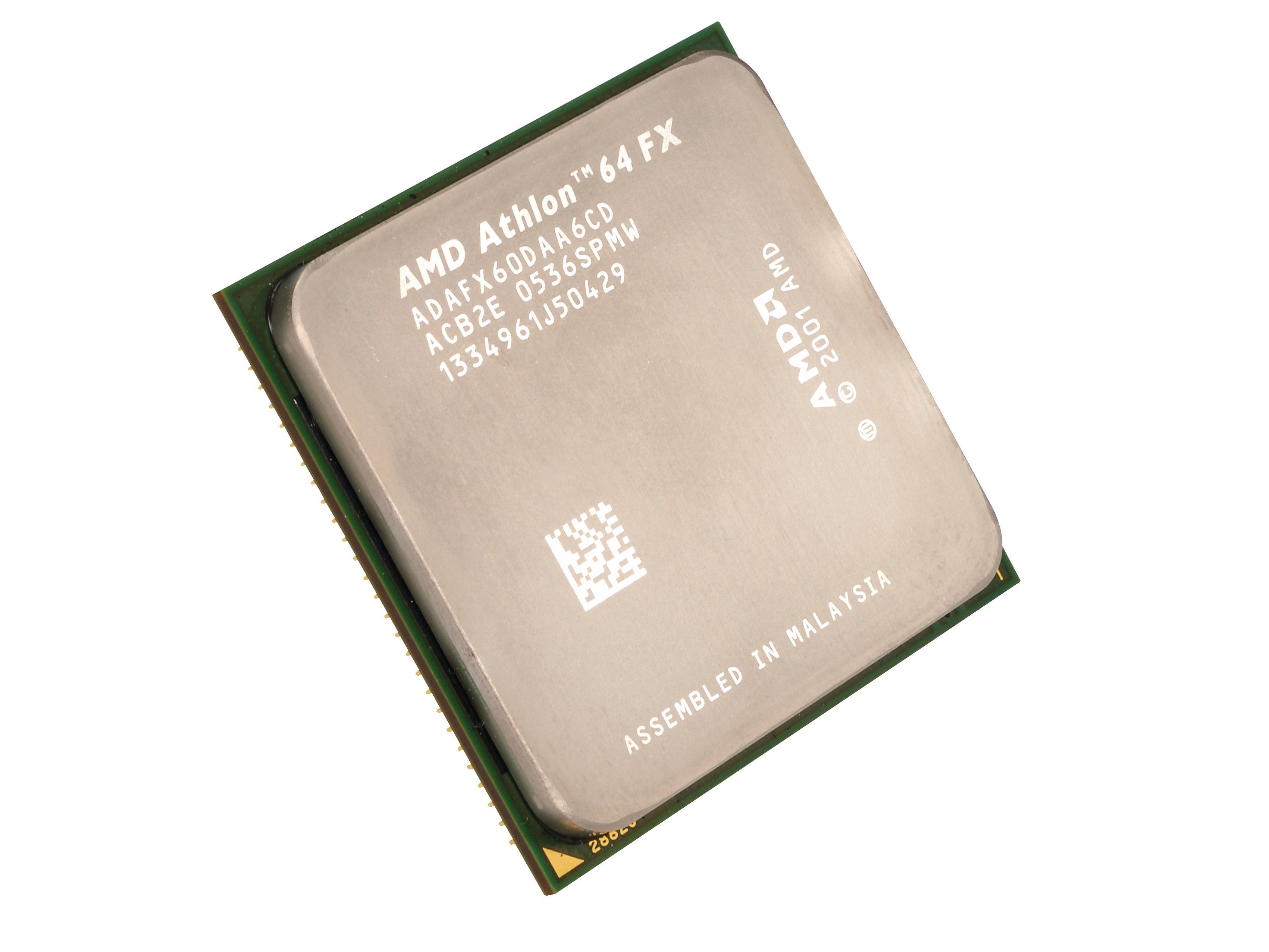TechRadar Verdict
Technically Brilliant, financially flawed
Pros
- +
Dual core power
Speedy benchmark scores
Cons
- -
Intel's Core 2 Duo
The price tag
Why you can trust TechRadar
Processors keep getting faster and faster, it's one of the huge computing clichés. The latest chip from AMD doesn't deviate from this trend, although it's still something of a surprise. AMD's FX range was originally aimed at the 'enthusiast' market, alternatively known as the gamers-with-lots-of-spare-cash segment. Similar in scope to Intel's Extreme Edition chips, AMD has, until now, stuck with single-core FX chips, because most games aren't programmed with dual-core chips in mind.
There's obviously been a change of ethos for the FX-60, however, as the move to even numbers finally introduces the first dual-core FX chip. This change in scope means that comparisons to previous members of the FX range are difficult, because this is closer to a speed boost for the Athlon 64 X2 4800 than any single-core offering.
Indeed, apart from running at 2,600MHz as opposed to 2,400MHz, this is nearly identical to the 4800 . Each core has access to 128KB of Level 1 cache, split into 64KB of data and instruction caches, as well as 1MB of L2 cache for each core. It also supports 64-bit computing, SSE1, 2 and 3, Cool 'n' Quiet and 3DNow!
When it comes to tangible performance improvements, it depends on which chip the FX-60 is compared to. Relative to the last release from this range (the FX-57), the raw power on offer is phenomenal and almost doubles the Dhrystone results from SiSoftware Sandra 2005, from 12,034MIPS to 22,000MIPS, with a similar story in the floating point tests.
Figures, lots of figures
This is repeated in the benchmark's multimedia test, managing a whopping 49,227it/s as opposed to 26,807. However, things are less impressive when compared to the Athlon 64 X2 4800 , which scores 20,603MIPS and 45,944it/s respectively and is a relatively minor improvement. Performance increases aside, this isn't a chip worth rushing out and upgrading your whole platform to.
The imminent release of the M2 spin-off, the Athlon 64 that supports DDR2 memory, limits the upgrade path for the socket 939 format, because DDR2 requires a new socket. Even if you already have a socket 939 motherboard, the performance you're getting for the price makes the likes of the Athlon 64 X2 4200 a much more interesting dual-core chip. Of course, if you do want the best performance and money really is no object, then this is a phenomenal slither of silicon. Alan Dexter
Sign up for breaking news, reviews, opinion, top tech deals, and more.
Tech.co.uk was the former name of TechRadar.com. Its staff were at the forefront of the digital publishing revolution, and spearheaded the move to bring consumer technology journalism to its natural home – online. Many of the current TechRadar staff started life a Tech.co.uk staff writer, covering everything from the emerging smartphone market to the evolving market of personal computers. Think of it as the building blocks of the TechRadar you love today.
